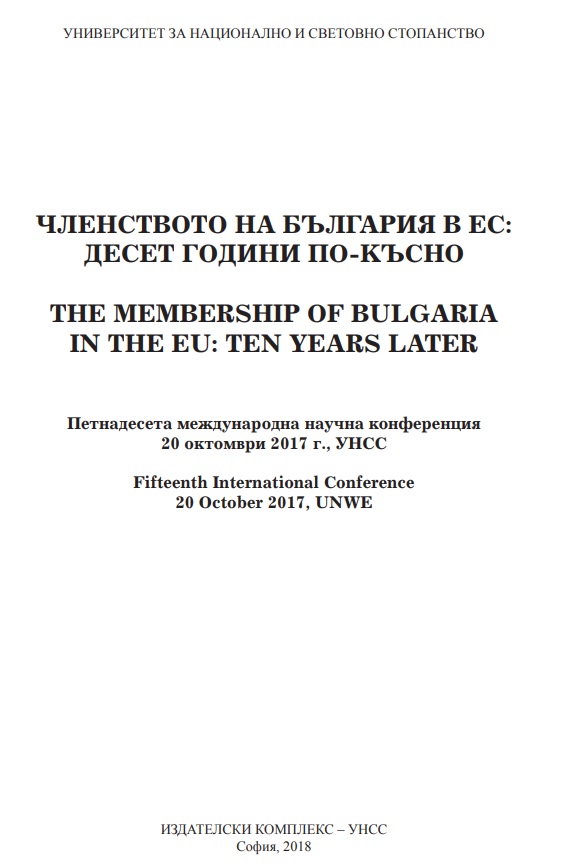Мерки на Европейския съюз по бежанската криза
Measures of the European Union on the Refugee Crisis
Author(s): Atanas Pavlov
Subject(s): Politics / Political Sciences, Politics, Economy, Welfare systems, Socio-Economic Research, Asylum, Refugees, Migration as Policy-fields
Published by: Университет за национално и световно стопанство (УНСС)
Keywords: European Union; Refugee Crisis; Migrants
Summary/Abstract: Over the past almost three years, the European Union and Europe as a whole have been faced with the challenge of reaching an agreement on a number of issues regarding the largest migration movement since the Second World War – the so-called "refugee crisis". The set of measures includes actions to address the root causes of the crisis and a significant increase in humanitarian aid both within and outside the Union. One of the key aspects of the EU migration policy management, which is included in the European Migration Program of May 2015, is the hotspot approach. The European Commission has introduced the "hotspot" approach in order to support Greece and Italy as first-line members in coping with the significant increase in the number of irregular migrants arriving at their external borders for the period from 2015 to 2016. The aim of this approach is to provide operational support to Member States to ensure arriving migrants are identified, registered and fingerprinted, and channelled into the relevant follow-up procedures. To a greater extent, the hotspot approach can be seen as positive for improving migration management in both Member States by increasing their migrants reception capacity, enhancing registration procedures and consolidating efforts to coordinate operational assistance. However, setting them up took longer than planned. In Greece, four of the five planned hotspots were operational in March 2016, with the last one coming into operation by June 2016. In Italy, four out of six planned hotspots were operational in March 2016, and two additional hotpots were still in the process of being set up but not yet operational at the end of February 2017. Despite the considerable support from the EU, at the end of 2016 the reception facilities in both countries were not yet adequate to properly receive (Italy) or accommodate (Greece) the number of migrants arriving. There is still a shortage of adequate facilities to accommodate and process unaccompanied minors in line with international standards, both in the hotspots and at the next level of reception.
Book: Членството на България в Европейския съюз: десет години по-късно
- Page Range: 255-270
- Page Count: 16
- Publication Year: 2018
- Language: Bulgarian
- Content File-PDF

